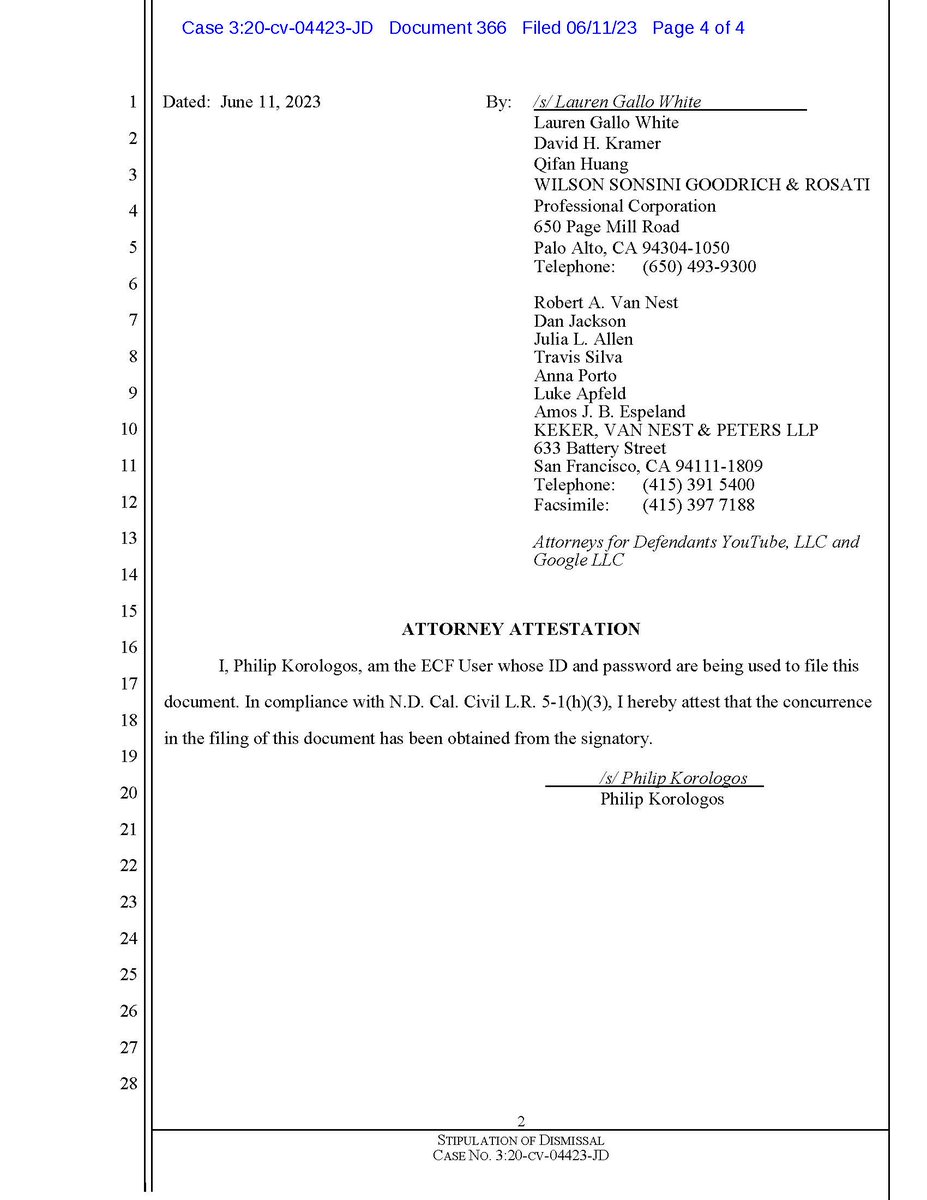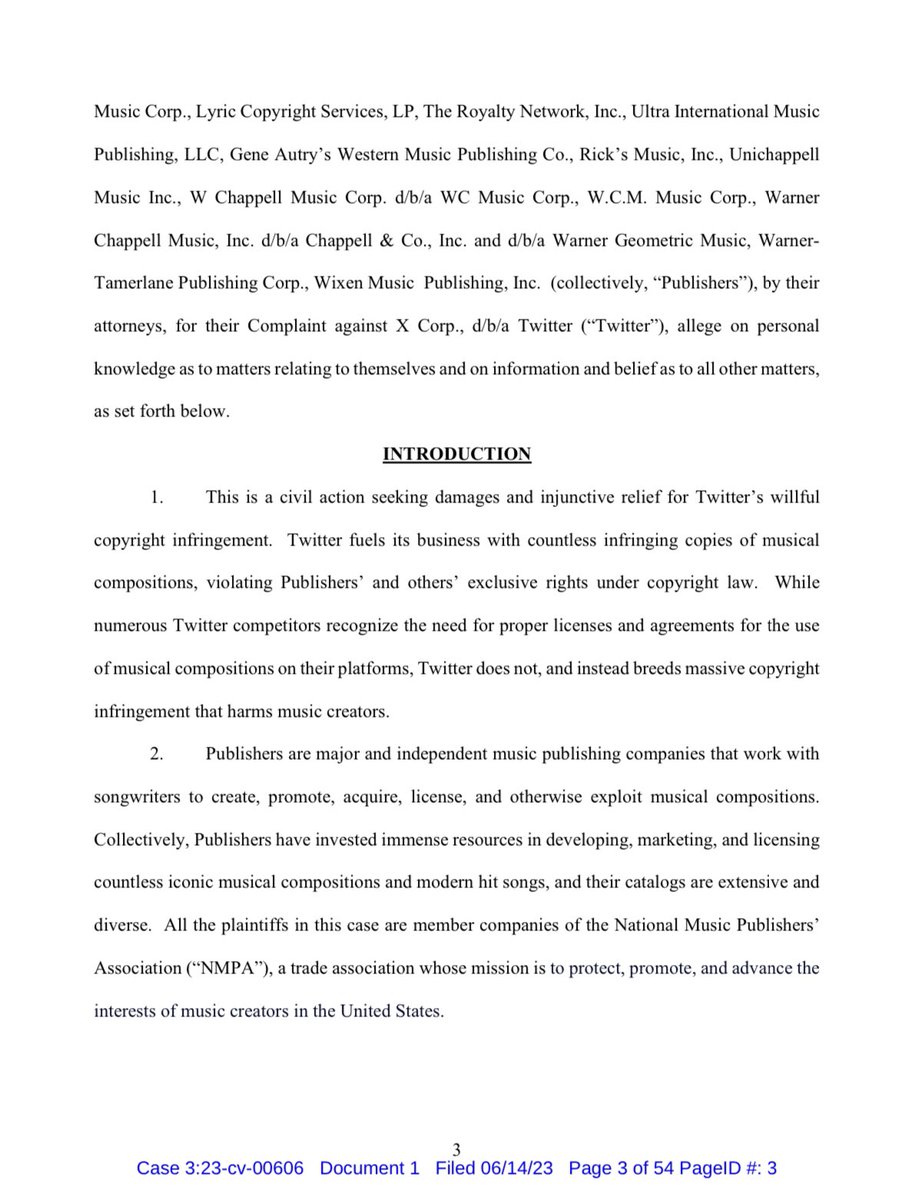It's over! The Content ID lawsuit against YouTube brought by composer Maria Schneider is dismissed, with prejudice, the weekend before the start of the trial.
Here's what's happened... 🧵
#ContentID #copyright #YouTube #creators #CreatorEconomy



Here's what's happened... 🧵
#ContentID #copyright #YouTube #creators #CreatorEconomy




If you recall, the lawsuit was filed in 2020 and focused on the lack of broader access to copyright management tools, such as Content ID, for independent musicians and creators.
Maria Schneider and others filed the class action against YouTube and Google in an attempt to claim the current system supports piracy, while boosting profits for YouTube, and can't handle repeat infringers.
Last month, I covered the denial by the court to certify a class, which led to a re-assessment of the scope of the trial by the parties. It seems over the last few weeks, there were exchanges and ideas from both sides about what should and shouldn't remain as the trial loomed.
An attempt to dismiss some of those claims without prejudice on Saturday would have allowed any dismissed claims to proceed at a later date if chosen. However, it seems that changed, too.
In the latest dismissal filed on Sunday, the claims are dismissed with prejudice, meaning it's the end of the road for this matter after three years of litigation.
The case is Schneider v. YouTube, LLC (3:20-cv-04423)
District Court, N.D. CA.
Docket on CourtListener: courtlistener.com/docket/1731965…
District Court, N.D. CA.
Docket on CourtListener: courtlistener.com/docket/1731965…
Don't miss these updates and more! Consider following me and also subscribing to my newsletter or website. Links on profile!
Read this tweet thread as an article: creatoreconomylaw.com/content-id-cop…
• • •
Missing some Tweet in this thread? You can try to
force a refresh

 Read on Twitter
Read on Twitter

















